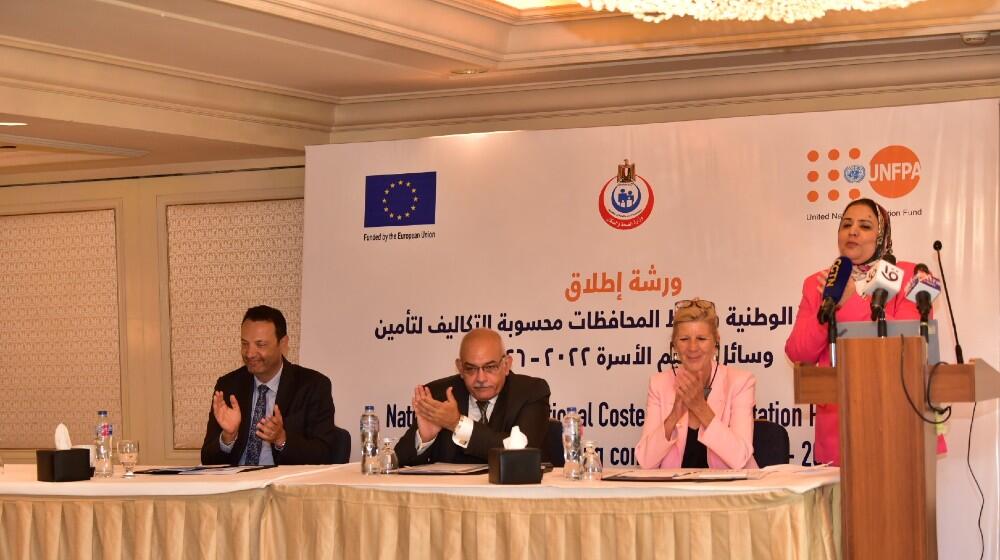The Ministry of Health and Population in cooperation with UNFPA and the support of the European Union held a workshop on June 7, 2022, to launch the National Costed Implementation Plan (CIP), along with 27 sub-national CIPs, which is a tool to project the contraceptive needs nationwide for the period between 2022-2026.
The plan represent an actionable, multi-year roadmap designed to assist the Ministry of Health and Population in achieving the objectives of the National Family Planning Program on both the national and governorate levels. They include a series of interventions to ensure commodity security, in addition estimate required funds to implement identified interventions.
The CIP present a useful tool for both the government and donors, as it projects the contraceptive needs both financially and programmatically.
“Securing contraceptive commodities is critical to ensuring access and choices to family planning methods, and ultimately ending unmet needs for family planning – which is currently at the top of the Egypt’s agenda,” Frederika Meijer, UNFPA Representative in Egypt said, “The CIPs helped us identify the challenges that stand in the way of that goal, especially at the governorate level, and set priorities accordingly.”
Head of Cooperation of the European Union Delegation to Egypt, Ibrahim Laafia, stressed that achieving sustainable demographic growth is instrumental in balancing population with the available natural resources, meeting the aspirations of the public for a better future. Through this project the EU is standing by Egypt to implement its National Population Strategy in line with the country’s Sustainable Development Strategy, Vision 2030.
The CIP comes in light of the recently launch of the National Project for the Development of the Egyptian Family, which aims at improving the quality of life of Egyptian citizens through stabilizing population growth.
One of the national project’s main axis is service provision, and is focused on addressing unmet needs for family planning methods by making contraceptives accessible.
This comes in line with the EU Support to Egypt’s National Population Strategy project’s objectives. Under which the CIPs are launched.
The plans address and budget the following thematic areas of the family planning program: advocacy and resources mobilization, demand creation; service delivery and access; contraceptive security; policy and enabling environment; financing; stewardship, management, and accountability. In addition, it helps the government translate its family planning commitments and goals into concrete programs and policies.
The EU Support to Egypt’s National Population Strategy project, implemented with UNFPA, aims at scaling up family planning services including contraceptive commodities and make them more accessible.
This workshop was attended by representatives from UNFPA and the Ministry of Health and Population, as well as representatives from development partners including the European Union, the Embassy of Canada, the Embassy of Switzerland, the Royal Norwegian Embassy, the Embassy of Germany, USAID, the French Development Agency (AFD), the Embassy of the Netherlands, and the World Bank.
Representatives from the private sector including Bayer, Organon, Pfizer, AKDIMA, Techno Pharma, and DKT also attended the workshop.


